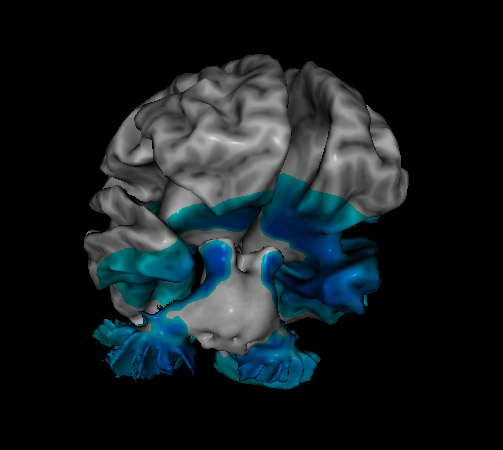WHAT THE RESEARCH SAYS
Depression can affect individuals of all ages and backgrounds and is one of the leading causes of disability around the world. Because depression affects not only mood, but energy levels, concentration, motivation, and self-concept as well, it’s easy to understand how the disorder can make daily life tasks extremely difficult. Empirical research suggests that neurotherapy and integrative modalities can play important roles in the treatment of depression and other mood related disorders by addressing their underlying neurological and physiological causes.
Alpha asymmetry is commonly observed in the EEGs of those with depression. One study looked at using neurofeedback to address this asymmetry by increasing the activation of the left hemisphere and/or decreasing the activation of the right hemisphere (Baehr, Rosenfeld, & Baehr, 2008). The participants each underwent 34 sessions of neurofeedback and completed the MMPI-2 (a psychological measure) at the beginning and end of treatment. Results from the MMPI-2 suggest that alpha asymmetry training could be an effective modality to use with individuals with depression, especially when paired with psychotherapy.
Another study (Wang et al., 2016) also examined the efficacy of using neurofeedback to decrease alpha asymmetry in the brains of those with depression using two groups of participants. One group received neurofeedback training for 1 hour each week for 6 weeks and the other group received no training. At the end of the 6 weeks, the group that received neurofeedback not only showed a balancing of alpha activity but also reported lowered anxiety and depression while the control group reported an overall increase of depression and anxiety symptoms. This, again, suggests that neurotherapy, specifically addressing alpha asymmetry can provide individuals with symptom relief and improved brain functioning.
For more research studies on this topic, see our Research page.
References:
Baehr, E., Rosenfeld, J. P., & Baehr, R. (1997). The clinical use of an alpha asymmetry protocol in the neurofeedback treatment of depression: Two case studies. Journal of Neurotherapy, 2(3), 10–23.
Wang, S.-Y., Lin, I.-M., Peper, E., Chen, Y.-T., Yeh, Y.-C., …. Chu, C.-C. (2016). The efficacy of neurofeedback among patients with major depressive disorder. Preliminary study. NeuroRegulation, 3(3), 127-134.




